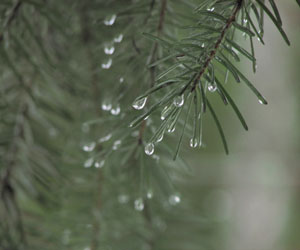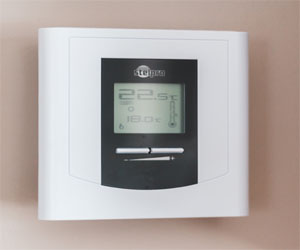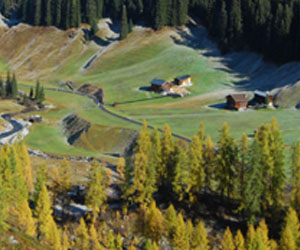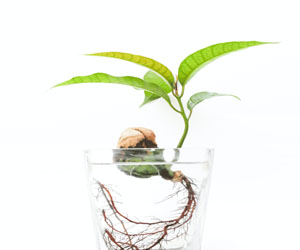


Embracing The Future Of Convenience And Efficiency

The idea of automated living, once a concept relegated to science fiction, is now a reality shaping the way we interact with our homes and surroundings. In the age of rapid technological advancement, automation has found its way into our daily lives, promising a future defined by unparalleled convenience and efficiency. This article explores the growing trend of automated living, its key components, and the impact it has on modern lifestyles.
The Essence Of Automation
Automated living is all about reducing the need for manual intervention and making our surroundings more responsive and adaptive. It encompasses a range of technologies and systems that can control and manage various aspects of daily life. From home automation to smart cities, the concept of automation extends far beyond the home, but for this article, we'll focus on how it's transforming our living spaces.
Smart Homes: The Cornerstone Of Automated Living
At the heart of automated living are smart homes. Smart homes are equipped with a wide range of devices and systems that can be controlled remotely and often autonomously. These include smart thermostats, lighting systems, security cameras, and even kitchen appliances. The integration of these devices into a centralized control hub, often accessible through a smartphone or voice-activated device, allows homeowners to create a fully automated and customized living environment.
Convenience Redefined
One of the primary appeals of automated living is the enhanced convenience it offers. Imagine arriving home on a scorching summer day to find your smart thermostat has already adjusted the temperature to your preferred level. Or, picture a scenario where your home's lights gradually brighten in the morning as you wake up, and your coffee maker starts brewing your morning cup without you lifting a finger. These examples illustrate how automation can simplify daily routines and make life more enjoyable.
Energy Efficiency
Automation also plays a pivotal role in promoting energy efficiency. Smart thermostats, for instance, can learn your heating and cooling preferences and create schedules that reduce energy consumption. Smart lighting systems can automatically turn off lights in unoccupied rooms, and smart appliances can operate during off-peak hours to save on energy costs. All of these actions lead to lower utility bills and a reduced environmental footprint.
Security And Peace Of Mind
Automated living extends to home security as well. Modern security systems often feature motion-activated cameras, doorbell cameras, and smart locks. These devices provide real-time monitoring and remote access, allowing homeowners to keep a watchful eye on their property, even when they're not at home. Automated alerts can notify you of unusual activity or breaches, enhancing your peace of mind.
Challenges And Considerations
While automated living offers numerous advantages, it's not without challenges. Privacy concerns, data security, and the potential for technical issues are some of the considerations. It's crucial for individuals and policymakers to address these concerns as we continue to embrace automation.
Automated living is reshaping the way we interact with our homes and environments. It represents a future where convenience, efficiency, and security are paramount, and where technology plays a central role in our everyday lives. As technology continues to advance, automated living is poised to become an integral part of modern living, offering a glimpse into a future where our surroundings adapt to our needs and preferences with remarkable precision.
A Crucial Step Towards A Sustainable Future
 The Global Water Challenge
The Global Water Challenge
Water scarcity is a pressing concern that affects both developed and developing nations. Climate change, population growth, urbanization, and inefficient water management practices all contribute to this crisis. According to the United Nations, by 2030, nearly half of the global population will be living in areas with high water stress, underscoring the urgency of effective water conservation.
The Significance Of Water Conservation
Water conservation is the practice of using water more efficiently and minimizing waste. It is a fundamental approach to address the water crisis for several reasons:
Preserving Natural Ecosystems: Adequate water conservation ensures that freshwater ecosystems, such as rivers, lakes, and wetlands, maintain their vitality, safeguarding biodiversity and ecological balance.
Reducing Energy Consumption: Treating, transporting, and heating water demands substantial energy. Water conservation lowers energy use and carbon emissions, contributing to a greener environment.
Mitigating Water Pollution: By reducing water usage, less polluted water enters wastewater treatment plants, making the treatment process more effective and minimizing the release of contaminants into natural water bodies.


The Power Of Smart Home Upgrades
 One of the primary advantages of smart home upgrades is the convenience they bring to our daily lives. Imagine being able to control your lights, thermostat, and even your coffee maker with a simple voice command or a tap on your smartphone. With the help of devices like smart speakers and home automation systems, you can create a truly interconnected living space. Adjusting your home's settings to suit your preferences has never been easier, making everyday tasks more efficient and enjoyable.
One of the primary advantages of smart home upgrades is the convenience they bring to our daily lives. Imagine being able to control your lights, thermostat, and even your coffee maker with a simple voice command or a tap on your smartphone. With the help of devices like smart speakers and home automation systems, you can create a truly interconnected living space. Adjusting your home's settings to suit your preferences has never been easier, making everyday tasks more efficient and enjoyable.
Security And Peace Of Mind
Smart home security is another major draw for homeowners. Advanced security systems equipped with cameras, motion sensors, and doorbell cameras provide real-time monitoring and alerts. This means you can keep a watchful eye on your property, whether you're at home or miles away. Smart locks also add an extra layer of security, allowing you to control access remotely and even provide temporary digital keys to guests.
Energy Efficiency
Smart home upgrades can significantly contribute to reducing your energy consumption and environmental footprint. Smart thermostats, for instance, can create personalized heating and cooling schedules that adapt to your daily routines, resulting in lower energy bills. Moreover, you can monitor and control your energy usage with the help of energy management systems, which offer insights into where and how you can save energy.
Customized Entertainment
Entertainment systems have also undergone a transformation with smart home upgrades. With a single remote control or voice command, you can manage your audio and video equipment, from smart TVs and streaming devices to home theater systems. Integration with virtual assistants like Alexa or Google Assistant allows you to effortlessly switch between your favorite movies, music, and more.
The Art Of Wilderness Living
 Wilderness living is all about embracing the raw and unspoiled natural world. It involves choosing to reside in remote, unpopulated areas, often far from the amenities and comforts of modern civilization. Those who opt for this lifestyle build their homes, forage for food, and harness the elements to survive. It's a challenging yet rewarding way of life that allows individuals to experience a profound sense of freedom, self-sufficiency, and harmony with nature.
Wilderness living is all about embracing the raw and unspoiled natural world. It involves choosing to reside in remote, unpopulated areas, often far from the amenities and comforts of modern civilization. Those who opt for this lifestyle build their homes, forage for food, and harness the elements to survive. It's a challenging yet rewarding way of life that allows individuals to experience a profound sense of freedom, self-sufficiency, and harmony with nature.
One of the fundamental aspects of wilderness living is self-reliance. Those who live in the wild learn to depend on their resourcefulness and creativity to meet their basic needs. Whether it's building shelter from natural materials, hunting, fishing, or foraging for food, these individuals rely on their ingenuity and skills to thrive in a challenging environment.
Living in the wilderness requires adaptability, as nature is unpredictable. The ability to respond to changing conditions, from weather patterns to the availability of food sources, is crucial for survival. Wilderness dwellers must be in tune with the rhythms of the natural world, adapting and learning as they go.
The off-grid lifestyle also emphasizes sustainability. Wilderness living encourages the minimal environmental impact by relying on renewable resources, generating one's own energy, and adopting eco-friendly practices. Sustainability is not just a choice but a necessity when living far from the conveniences of the modern world.
Community plays a significant role in wilderness living. While it may seem like a solitary existence, many individuals who choose this lifestyle join like-minded communities, which provide support, shared knowledge, and a sense of belonging. These communities often come together to share resources, build collective shelters, and ensure their collective well-being.
The Pursuit Of Water Efficiency
 Sustainability: As populations grow and climate change exacerbates water scarcity, efficient water use is necessary to meet the needs of current and future generations.
Sustainability: As populations grow and climate change exacerbates water scarcity, efficient water use is necessary to meet the needs of current and future generations.
Environmental Preservation: Efficient water use helps protect aquatic ecosystems, conserves habitats, and reduces the negative impacts of water extraction on nature.
Economic Benefits: By reducing water waste, businesses and industries can cut costs, enhance their resilience to water scarcity, and maintain profitability.
Strategies For Achieving Water Efficiency
Numerous strategies and technologies promote water efficiency:
Water-Saving Appliances: Low-flow toilets, high-efficiency washing machines, and water-efficient faucets help reduce domestic water use.
Smart Irrigation: Advanced irrigation systems equipped with sensors and weather data can optimize watering schedules, reducing water waste in agriculture and landscaping.
Leak Detection: Identifying and repairing leaks in water supply systems is a crucial step in preventing water loss.
Wastewater Treatment And Reuse: Treating and reusing wastewater for non-potable purposes like irrigation or industrial processes conserves freshwater resources.
Public Awareness: Educational campaigns and policies can encourage responsible water use among individuals and communities.
Positive Impacts Of Water Efficiency
Efficient water use offers a range of positive impacts:
Conserving Water Resources: By minimizing water waste, we ensure that enough freshwater is available for essential needs, even during periods of scarcity.
Reducing Energy Consumption: Water and energy are intrinsically linked. Water efficiency helps reduce the energy required for water treatment and transportation.
Protecting Ecosystems: Efficient water use reduces the diversion of water from natural habitats, preserving aquatic ecosystems and their biodiversity.
Financial Savings: Both households and industries can enjoy cost savings through reduced water bills and improved resource management.
Cultivating Wellness Through Nature
 Gardening is more than just a hobby; it's a therapeutic and health-enhancing activity that can significantly improve your physical, mental, and emotional well-being. From reducing stress to increasing physical activity, there are numerous ways in which gardening contributes to a healthier, happier life. In this article, we'll explore the many benefits of gardening for health and provide tips for harnessing the power of nature in your outdoor space.
Gardening is more than just a hobby; it's a therapeutic and health-enhancing activity that can significantly improve your physical, mental, and emotional well-being. From reducing stress to increasing physical activity, there are numerous ways in which gardening contributes to a healthier, happier life. In this article, we'll explore the many benefits of gardening for health and provide tips for harnessing the power of nature in your outdoor space.
Stress Reduction: The act of gardening, with its rhythmic tasks like planting, weeding, and watering, has a calming effect on the mind. Engaging with nature and the tactile experience of working in the garden can reduce stress and anxiety levels. The peace and tranquility of a garden offer a therapeutic escape from the demands of daily life.
Physical Exercise: Gardening is an excellent form of physical activity. Activities such as digging, planting, and weeding can provide a full-body workout, improving strength, flexibility, and cardiovascular health. Spending time outdoors in the fresh air and sunlight also promotes vitamin D synthesis and overall well-being.
Healthy Eating: Many gardeners grow their fruits and vegetables, which encourages a diet rich in fresh, organic produce. Homegrown fruits and vegetables are often more nutritious than store-bought alternatives, as they can be harvested at their peak ripeness and consumed immediately.
Mental Well-Being: Gardening has been linked to improved mental health. The sense of accomplishment that comes from nurturing plants and watching them flourish can boost self-esteem and mood. The creative aspect of garden design can also stimulate mental faculties.
Streamline Your Space And Simplify Your Life

2. The One-Year Rule
If you haven't used or needed an item within the last year, consider whether it's truly necessary in your life. Apply the one-year rule when decluttering. If you haven't touched it in that time, it may be time to let it go.
3. Declutter By Category
Organize your decluttering efforts by category, not by room. For example, gather all your books, clothing, or kitchen items in one place and go through them systematically. This approach allows you to see the full extent of your possessions in that category.
4. Use The Four-Box Method
When decluttering a space, use the four-box method: one box for items to keep, one for items to donate, one for items to sell, and one for items to discard. This method helps you make decisions quickly and efficiently.
5. Minimalism In Mind
Embrace a minimalist mindset by focusing on quality over quantity. Ask yourself if you truly need multiple versions of the same item or if one well-made item will suffice. Reducing duplicates is a quick way to declutter.
A Clean Home And A Clean Conscience
 Environmental Impact: Traditional cleaning products can contain hazardous chemicals that, when washed down the drain, enter water systems and harm aquatic life. Green cleaning helps reduce water pollution and the environmental impact of your cleaning routine.
Environmental Impact: Traditional cleaning products can contain hazardous chemicals that, when washed down the drain, enter water systems and harm aquatic life. Green cleaning helps reduce water pollution and the environmental impact of your cleaning routine.
Reducing Plastic Waste: Many green cleaning products come in recyclable or refillable containers, reducing plastic waste and contributing to a healthier planet.
Sustainability: By opting for sustainable cleaning practices, you contribute to a more eco-friendly world and encourage the development of environmentally responsible products.
How To Get Started With Green Cleaning
Assess Your Current Cleaning Products: Start by taking a look at the cleaning products you use. Identify which ones contain harsh chemicals and consider replacing them with greener alternatives.
Make Your Own Cleaning Solutions: Many effective cleaning solutions can be made using simple ingredients found in your pantry. For example, a mixture of vinegar and water can be a powerful all-purpose cleaner.
Read Labels: When purchasing cleaning products, read labels carefully. Look for certifications like "EcoLogo" or "Green Seal" to ensure that the product meets environmental and health standards.
Choose Reusable Cleaning Tools: Opt for reusable cleaning tools like microfiber cloths and mop heads to reduce waste.
Reduce, Reuse, Recycle: Use cleaning products and containers that are recyclable or refillable. This minimizes your environmental footprint.
The Green Cleaning Revolution
Green cleaning is not just a trend; it's a fundamental shift towards responsible and sustainable cleaning practices. It empowers individuals to make informed choices that have a positive impact on their well-being and the environment. It's also a step towards a more mindful and eco-conscious way of living.